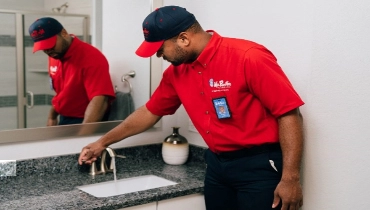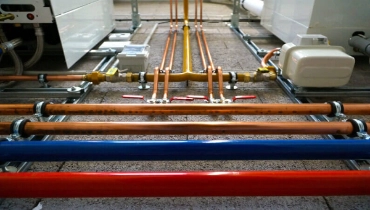If you can identify with any of these phrases, you may have drain problems. Clogged drains can cause headaches and health hazards.
Learn moreOur Austin Plumbing Blog
Shared Resources for Your Home Needs
All Blogs
You're lying in bed at night. Suddenly, you notice a faint but unmistakable sound. Plop, plop, plop.
Learn moreRunning toilets, leaking pipes, clogged sinks, sewer backups—which of these situations is considered a plumbing emergency?
Learn moreThere are almost 500,000 plumbers in the US. That means when choosing residential plumbers — especially in a large city like
Learn moreMany people only realize how much their plumbing system affects their everyday life once something goes wrong. Not only does it he
Learn moreThe first water pipes were created sometime around 4000-3000 B.C. While some forms of plumbing have been around for tho
Learn moreBlog Categories
Let Us Call You
Blog Categories
About Mr. Rooter Plumbing

Since the original Mr. Rooter was founded in 1970, the company has remained committed to a set of core values that are rooted in performing quality work at honest prices. Nearly half a century later, the original Mr. Rooter business is still servicing homes and businesses in and around Oklahoma City. It’s still independently owned and operated with strong ties to the community that made it all possible.


